Photo AI
Last Updated Sep 26, 2025
Character Analysis Simplified Revision Notes for A-Level OCR English Literature
Revision notes with simplified explanations to understand Character Analysis quickly and effectively.
333+ students studying
Character Analysis
Estragon
Overview
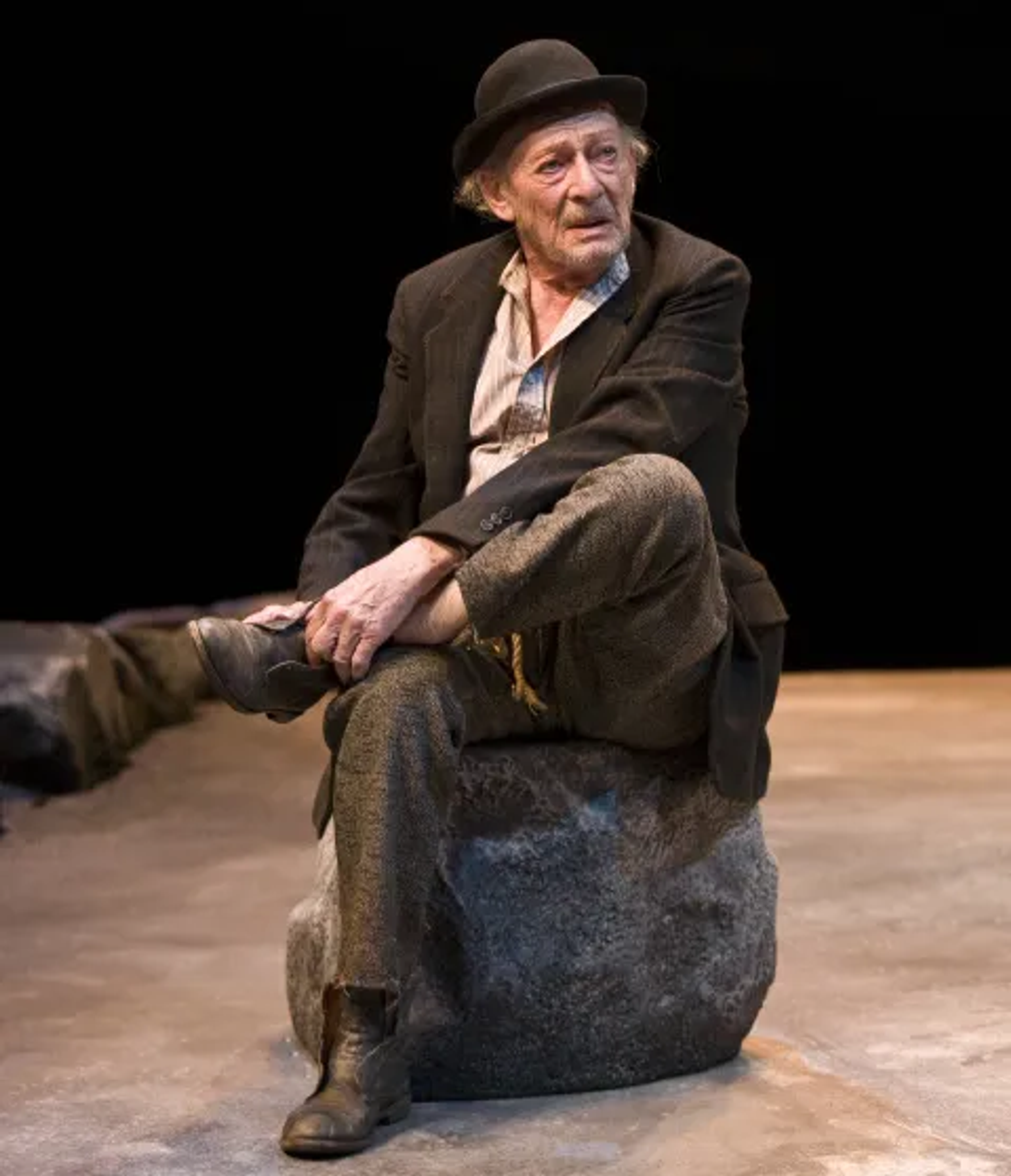
Estragon, one of the two main characters in Samuel Beckett's play "Waiting for Godot," is portrayed as a helpless, forgetful, and somewhat childlike figure. Often dependent on his companion Vladimir, Estragon struggles with basic tasks and has a poor grasp of time and identity. His repeated desires to leave are always countered by Vladimir's insistence on waiting for Godot, highlighting themes of existentialism and the absurdity of human existence.
Key Moments in the Play
- Estragon's Struggle with His Boots (Act 1): Estragon struggles to remove his boots, a task that highlights his physical discomfort and helplessness.
- This moment symbolizes Estragon's overall struggle with life and his dependency on Vladimir for support and direction.
- Estragon's Forgetfulness (Act 2): Estragon fails to recognize Pozzo and Lucky and even forgets previous conversations and events.
- This forgetfulness underscores the play's themes of repetition and the instability of memory and identity.
- Desire to Leave (Throughout the Play): Estragon repeatedly expresses a desire to leave the place where he and Vladimir wait for Godot.
- His constant wish to leave contrasts with his inability to act on it, reflecting the human condition of being trapped in an endless cycle of waiting and hoping.
Key Theme
-
Dependency and Companionship: Estragon's reliance on Vladimir for physical and emotional support highlights the importance of human relationships in a meaningless world.
-
Absurdity and Meaninglessness: Estragon's forgetfulness and repetitive actions emphasize the absurdity and lack of purpose in human life.
-
Suffering and Resignation: Estragon's physical discomfort and existential despair reflect the broader theme of human suffering and the search for meaning.
Key Quotes
"Nothing to be done." (Act 1)
- Estragon's remark after failing to remove his boots, reflects his resignation to his situation.
- This quote encapsulates the play's theme of existential helplessness and the futility of human effort.
"We always find something, eh Didi, to give us the impression we exist?" (Act 2)
- Estragon comments on the trivial activities they engage in to pass the time and create a sense of existence.
- This quote highlights the characters' struggle to find meaning in their actions and the absurdity of their situation.
Vladimir
Overview
Vladimir, also known as Didi, is the more intellectual and responsible of the two main characters in "Waiting for Godot." He often takes care of Estragon and tries to maintain a sense of purpose and hope as they wait for Godot. Vladimir's character embodies themes of existentialism, faith, and the human condition's inherent struggles.
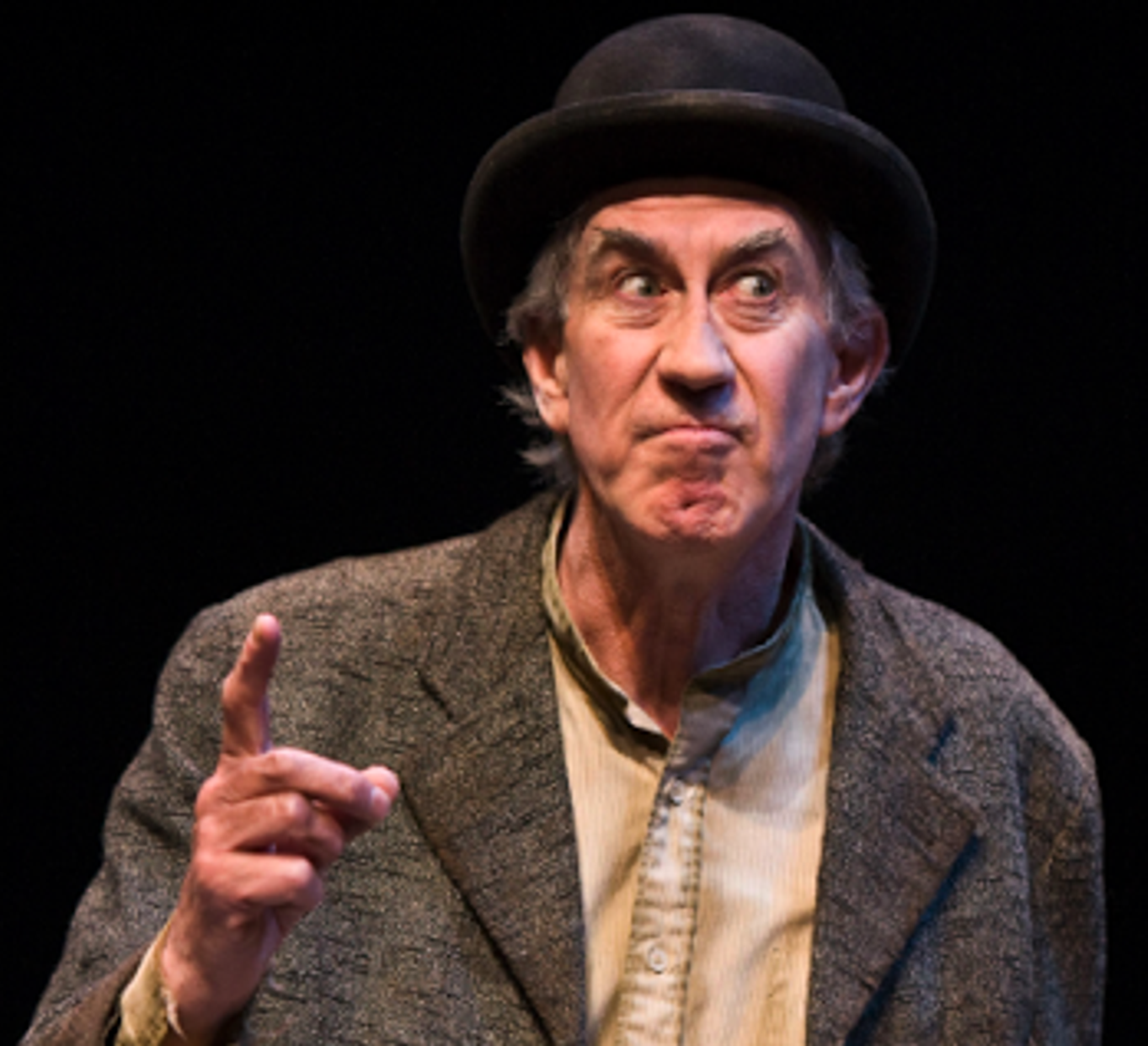
Key Moments in the Play
- Vladimir's Care for Estragon (Act 1): Vladimir shows concern for Estragon's well-being, offering him food and trying to comfort him.
- This moment highlights Vladimir's role as a caretaker and his sense of responsibility.
- Philosophical Reflections (Throughout the Play): Vladimir often engages in philosophical discussions, pondering the meaning of life and the nature of their existence.
- These reflections underscore the play's existential themes and Vladimir's search for understanding.
- Hope in Godot's Arrival (Act 2)****: Vladimir remains hopeful and insistent on waiting for Godot, believing that his arrival will bring change.
- This hope contrasts with the recurring disappointment and highlights the theme of faith and its challenges.
Key Theme
- Faith and Waiting: Vladimir's insistence on waiting for Godot symbolizes the human tendency to hope for salvation or change despite continuous disappointment.
- Existential Inquiry: Vladimir's philosophical musings reflect the existential questions that underpin the play, such as the search for meaning and the nature of existence.
- Companionship and Dependence: His relationship with Estragon illustrates the interdependence of individuals and the need for companionship in an absurd world.
Key Quotes
"Let us not waste our time in idle discourse!" (Act 2)
- Vladimir's plea to focus on meaningful actions rather than pointless conversation.
- This quote highlights his desire to find purpose and avoid the futility of their situation.
"What are we doing here, that is the question." (Act 1)
- Vladimir questions the purpose of their wait, reflecting his existential doubt.
- This quote underscores the play's central theme of searching for meaning in a meaningless existence.
Godot
Overview
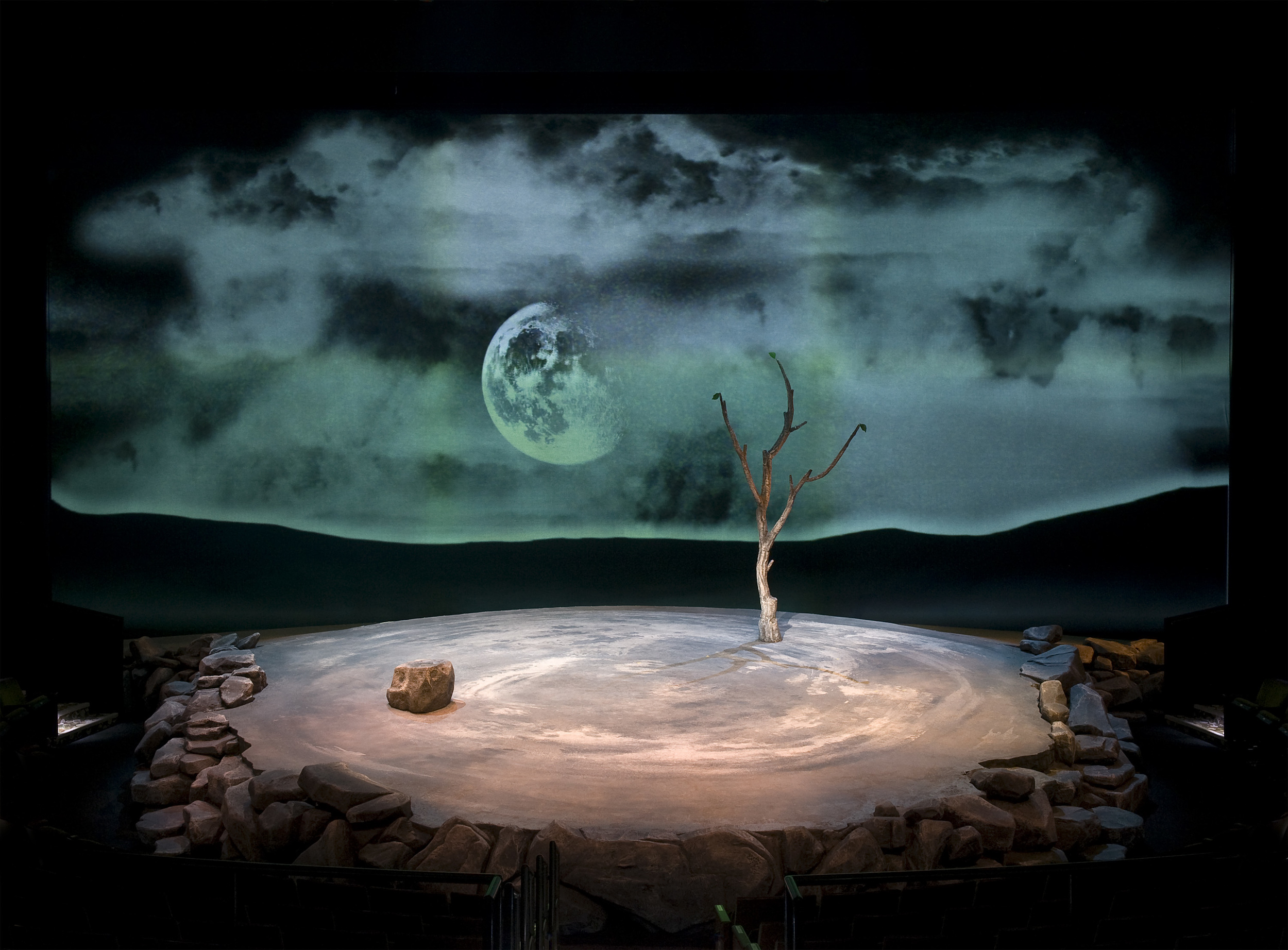
Godot is the enigmatic figure for whom Vladimir and Estragon wait throughout the play "Waiting for Godot." Although Godot never appears on stage, his anticipated arrival drives the actions and conversations of the two main characters. Godot's ambiguous nature has led to various interpretations, including as a representation of God, hope, or a never-fulfilled promise.
Key Moments in the Play
- Message from the Boy (Act 1 and Act 2): A boy arrives to inform Vladimir and Estragon that Godot will not come today but will surely come tomorrow.
- This recurring message emphasizes the endless and futile nature of their wait.
- Discussion about Godot (Throughout the Play)****: Vladimir and Estragon frequently discuss who Godot is and what he represents, revealing their hopes and doubts.
- These discussions highlight the uncertainty and ambiguity surrounding Godot's identity and purpose.
Key Themes
- Hope and Despair**:** The wait for Godot symbolizes the human tendency to hope for a better future, despite continuous disappointment.
- Faith and Doubt: Godot's uncertain nature reflects the tension between belief and scepticism in the search for meaning.
- Absurdity and Futility: The perpetual waiting for Godot underscores the absurdity of seeking purpose in a seemingly purposeless world.
Key Quotes
"Let us do something, while we have the chance!" (Act 2)
- Vladimir's plea to take action rather than continue waiting passively for Godot.
- This quote highlights the tension between action and inaction, reflecting the characters' struggle to find meaning.
"We are waiting for Godot." (Throughout the Play)
- The simple declaration of their purpose is repeated several times.
- This quote encapsulates the central action (or inaction) of the play and the existential theme of waiting.
Pozzo
Overview
Pozzo is a domineering character who passes through the stage twice in Samuel Beckett's "Waiting for Godot." He is characterized by his abusive treatment of his slave, Lucky, and his subsequent descent into blindness and helplessness. Pozzo's character explores themes of power, control, and the arbitrary nature of human existence.
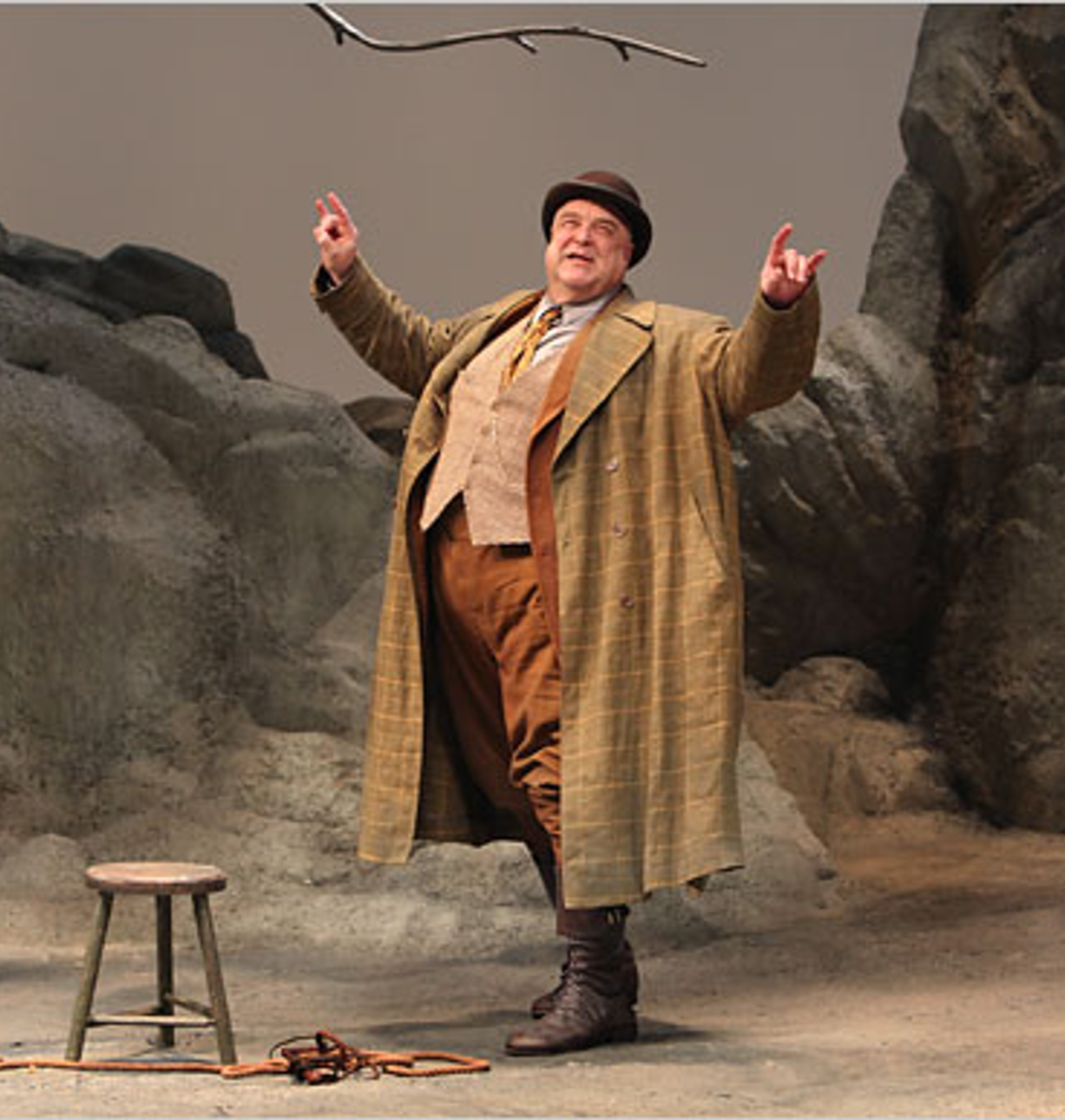
Key Moments in the Play
- First Appearance (Act 1): Pozzo enters, driving Lucky with a rope and treating him cruelly.
- This moment establishes Pozzo's authority and the power dynamics between him and Lucky.
- Blindness and Helplessness (Act 2): Pozzo returns, now blind and dependent on Lucky for guidance.
- This reversal of roles emphasizes the arbitrary and transient nature of power and control.
Key Themes
- Power and Oppression: Pozzo's treatment of Lucky highlights the theme of domination and the dehumanizing effects of power.
- Human Vulnerability: Pozzo's blindness in Act 2 underscores the fragility of the human condition and the inevitability of change.
- The absurdity of Existence: His arbitrary loss of sight and subsequent dependence on Lucky reflect the randomness and unpredictability of life.
Key Quotes
"I am blind." (Act 2)
- Pozzo's acknowledgement of his blindness indicates his vulnerability.
- This quote signifies the dramatic change in Pozzo's condition and the impermanence of power.
"Up, pig!" (Act 1)
- Pozzo's command of Lucky reflects his demeaning attitude.
- This quote illustrates Pozzo's abusive nature and the power imbalance in their relationship.
Lucky
Overview
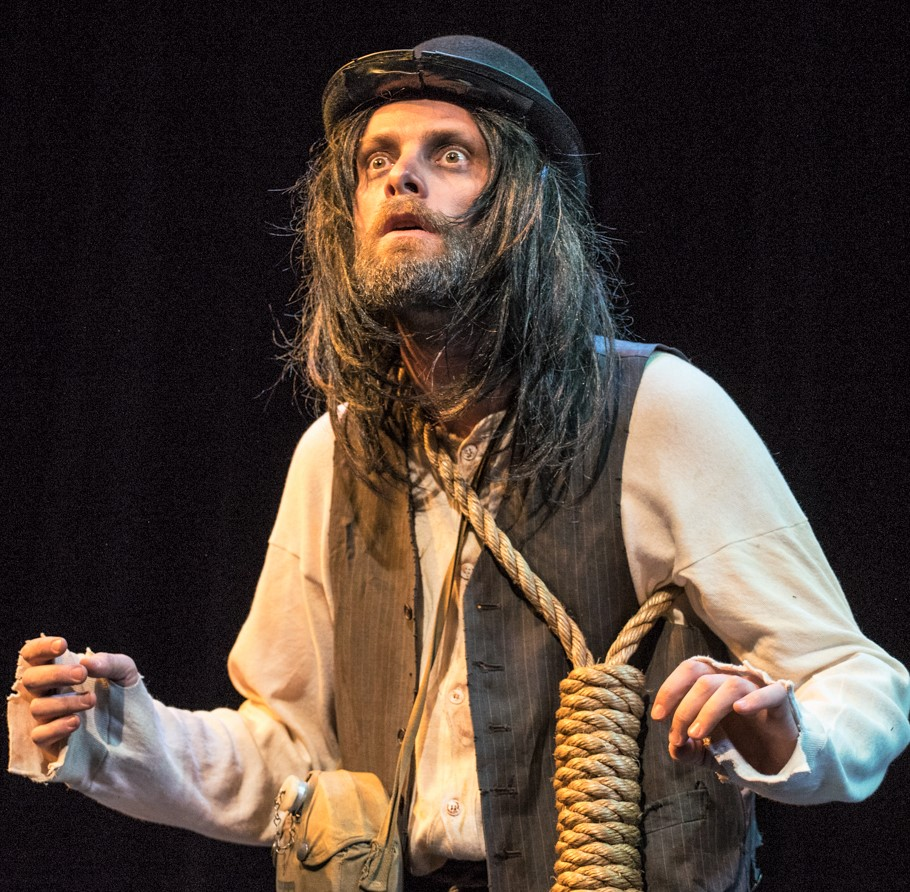
Lucky is Pozzo's mistreated slave in Samuel Beckett's "Waiting for Godot." He is mostly silent throughout the play, except for a lengthy and incoherent monologue in Act 1. Lucky's character represents suffering, exploitation, and the human condition's endurance under oppressive forces.
Key Moments in the Play
- Lucky's Dance and Speech (Act 1): Pozzo commands Lucky to dance and then to "think," resulting in Lucky's disjointed and rambling monologue.
- This moment highlights Lucky's suffering and the absurdity of his existence.
- Blind Leading the Blind (Act 2): In Act 2, Lucky leads the now-blind Pozzo, symbolizing the ironic reversal of their roles.
- This reversal underscores the theme of dependence and the arbitrary nature of power.
Key Themes
- Suffering and Exploitation: Lucky's character epitomizes the physical and emotional abuse suffered by those in subjugated positions.
- Absurdity and Meaninglessness: His incoherent speech reflects the play's absurdist themes and the breakdown of logical thought.
- Role Reversal: The shift in power dynamics between Lucky and Pozzo in Act 2 illustrates the transient and unstable nature of human relationships.
Key Quotes
"Given the existence as uttered forth in the public works of Puncher and Wattmann..." (Act 1)
- The beginning of Lucky's lengthy and nonsensical monologue.
- This quote exemplifies the breakdown of coherent thought and the absurdity of communication in the play.
"He can't think without his hat." (Act 1)
- Pozzo's comment about Lucky's dependence on his hat to think.
- This quote highlights the absurd and arbitrary conditions imposed on Lucky, reflecting his dehumanized state.
Boy
Overview
The Boy in "Waiting for Godot" serves as the messenger between Godot and the waiting tramps, Vladimir and Estragon. His character, though minor, plays a crucial role in perpetuating the anticipation and hope that drive the main characters' actions.
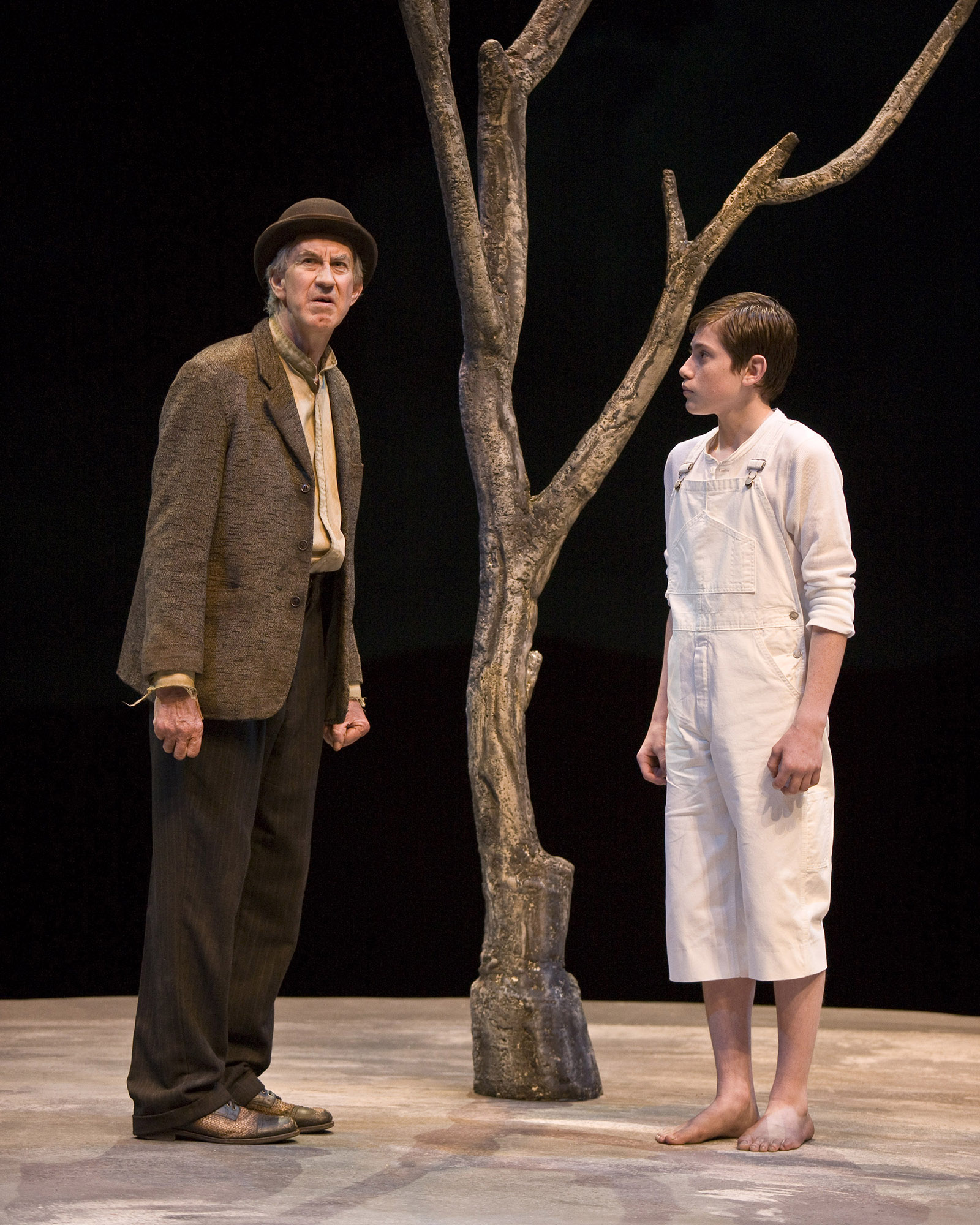
Key Moments in the Play
- First Appearance (Act 1): The Boy arrives to inform Vladimir and Estragon that Godot will not come today but will surely come tomorrow.
- This message sets the cycle of waiting in motion and underscores the theme of unfulfilled expectations.
- Second Appearance (Act 2): The Boy returns with the same message, further deepening the characters' despair and endless waiting.
- This repetition emphasizes the futility and hopelessness inherent in their situation.
Key Themes
- Hope and Disappointment: The Boy's messages embody the tension between hope and the continuous disappointment experienced by Vladimir and Estragon.
- The Cycle of Waiting: His repeated messages reinforce the play's central theme of waiting and the seemingly endless cycle of anticipation.
- Innocence and Oblivion: The Boy's innocence and lack of awareness contrast sharply with the existential anguish of the main characters.
Key Quotes
"Mr. Godot told me to tell you he won't come this evening but surely tomorrow." (Act 1)
- The Boy's message to Vladimir and Estragon sets the stage for their continued waiting.
- This quote highlights the recurring disappointment and the endless hope that defines the characters' existence.
"He does nothing, sir." (Act 2)
- The Boy's response when asked what Godot does.
- This quote reflects the enigmatic and inactive nature of Godot, further emphasizing the futility of the characters' wait.
500K+ Students Use These Powerful Tools to Master Character Analysis For their A-Level Exams.
Enhance your understanding with flashcards, quizzes, and exams—designed to help you grasp key concepts, reinforce learning, and master any topic with confidence!
50 flashcards
Flashcards on Character Analysis
Revise key concepts with interactive flashcards.
Try English Literature Flashcards5 quizzes
Quizzes on Character Analysis
Test your knowledge with fun and engaging quizzes.
Try English Literature Quizzes29 questions
Exam questions on Character Analysis
Boost your confidence with real exam questions.
Try English Literature Questions27 exams created
Exam Builder on Character Analysis
Create custom exams across topics for better practice!
Try English Literature exam builder12 papers
Past Papers on Character Analysis
Practice past papers to reinforce exam experience.
Try English Literature Past PapersOther Revision Notes related to Character Analysis you should explore
Discover More Revision Notes Related to Character Analysis to Deepen Your Understanding and Improve Your Mastery
96%
114 rated
Waiting for Godot by Samuel Beckett
Context & Writer’s Techniques
208+ studying
185KViews